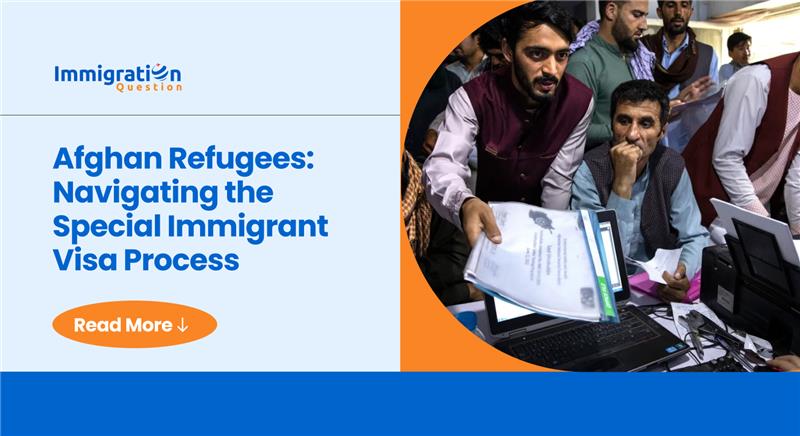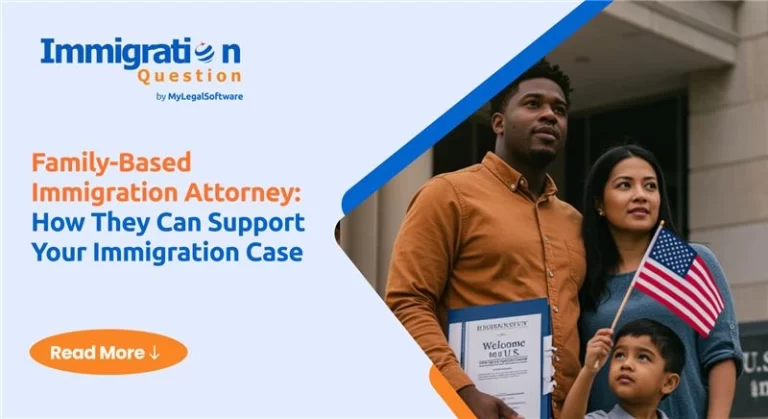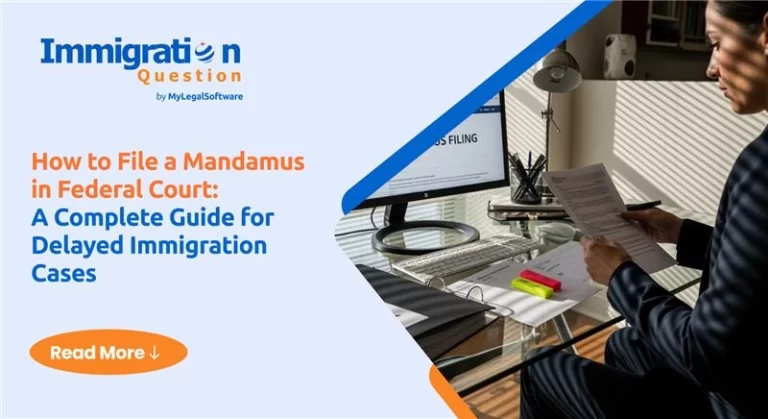The United States offers a pathway for Afghan citizens who have supported American interests through the Special Immigrant Visa (SIV) Program. The U.S. also opens its doors to Afghan refugees fleeing the country through the U.S. Refugee Admissions Program (USRAP).
These programs provide opportunities for Afghanistan citizens to rebuild their lives and pursue U.S. citizenship
Special Immigrant Visa Process for Afghans – Employed by/on Behalf of the U.S. Government
The Special Immigrant Visa for Afghans program allows Afghan citizens who served as interpreters, translators, or directly supported the U.S. Armed Forces or the Chief of Mission (COM) to enter the United States.
This program addresses essential resettlement needs and eventually paves the way for qualified individuals to secure U.S. citizenship. Among the various special cases for U.S. citizenship, Afghan SIVs are granted to those who served on behalf of the U.S. government.
Since 2009, over 50,000 SIVs have been awarded to Afghan nationals, who have provided invaluable services, often risking their safety. However, strict eligibility requirements govern the Afghan Special Immigrant Visa process to ensure that only those who meet specific criteria are granted this visa.
Eligibility Requirements for the Afghan Special Immigrant Visa
To be eligible for the Afghan SIV program, applicants must meet the following criteria:
Citizenship: Applicants must be Afghan nationals.
Employment: They must have been employed in Afghanistan by or on behalf of the U.S. government, the International Security Assistance Force (ISAF), or the Resolute Support (RS) mission.
Duration of Service: They must have worked for at least 12 months between October 7, 2001, and December 31, 2024.
Recommendation: Applicants must have a letter of recommendation from a direct supervisor or higher-ranking individual affirming their faithful and valuable service.
Application Deadline: Applications must be submitted no later than December 31, 2025.
Once eligible, applicants must complete a Chief of Mission (COM) application, initiating the pre-COM stage of the immigration process. This application requires four documents: the DS-157 form, a Letter of Employment (LOE), a Letter of Recommendation (LOR), and evidence of Afghan nationality.
Refugee Challenges and USRAP Processing
In addition to the SIV program, the U.S. Refugee Admissions Program (USRAP) offers two primary pathways for Afghan refugees: Priority-1 (P-1) and Priority-2 (P-2) processing. Both categories allow Afghan refugees to enter the U.S. as part of a larger resettlement effort.
Priority-1 (P-1) Processing: Individual Referrals
Afghans with a well-founded fear of persecution or documented instances of past persecution based on race, religion, nationality, political opinion, or social group membership may be eligible for P-1 referral.
These referrals are made by the United Nations High Commissioner for Refugees (UNHCR), certified NGOs, or a U.S. embassy. The P-1 program allows Afghan refugees to be considered for resettlement under the USRAP based on urgent protection needs.
Once an Afghan refugee’s case is deemed eligible, they undergo rigorous security and medical vetting. The Principal Applicant (PA) will receive confirmation once the referral is processed and an Afghan Referral Record (ARR) number, providing essential information for tracking the immigration process.
Priority-2 (P-2) Program: Special Groups of Concern
The Afghan Priority-2 (P-2) program, launched on August 2, 2021, targets Afghan refugees affiliated with U.S.-based entities, especially those who may not meet SIV requirements. The P-2 program facilitates U.S. citizenship and resettlement for Afghans who:
- Worked for U.S. government contractors as interpreters, translators, or other locally employed staff.
- Worked on U.S. government-funded programs or projects in Afghanistan.
- Were employed by U.S.-based media or NGOs, including stringers and freelance journalists.
The P-2 program allows Afghan refugees and their families (spouses and children) to seek U.S. citizenship and resettlement opportunities. Unlike the SIV, which requires a specific employment tenure, P-2 focuses on groups of Afghans with established ties to U.S. entities.
Afghan Arrivals Under Operation Enduring Welcome
In response to the long-standing commitment to Afghan allies, the U.S. government launched Operation Enduring Welcome (EW) to support Afghan refugees, Special Immigrant Visa holders, and certain parolees as they transition to life in the United States.
The EW initiative recognizes the sacrifices Afghan nationals made alongside U.S. diplomats, aid workers, and military personnel. The program ensures these brave individuals have an enduring pathway to U.S. citizenship and resettlement in safe communities nationwide.
The Afghan resettlement immigration process under Operation Enduring Welcome includes rigorous screening conducted by agencies like the Department of Homeland Security, Department of Defense, FBI, and National Counterterrorism Center. Afghan refugees and SIV holders undergo a multi-layered vetting process to ensure a safe and smooth immigration process for new arrivals.
Afghan arrivals are granted lawful residence and a pathway toward U.S. citizenship through the SIV program and the U.S. Refugee Admissions Program (USRAP).
Benefits for Afghan Arrivals Under Operation Enduring Welcome
Through EW, resettlement agencies and community groups ensure that Afghan refugees successfully transition. These services extend beyond initial placement; they provide ongoing support for Afghan refugees, Special Immigrant Visa holders, and Afghan parolees, making them self-sufficient as they pursue U.S. citizenship.
The Department of State and its resettlement partners are invaluable in this effort. Volunteers, community sponsors, and agency staff across the U.S. work tirelessly to support Afghan arrivals. This network provides housing, employment opportunities, and educational support.
Resettlement Locations for Special Immigrant Visa Process in the United States
Through EW, Afghan refugees and SIV holders are placed in cities and towns where they can best access resources for their needs. The Department of State Bureau of Population, Refugees & Migration (PRM) funds a network of ten national resettlement agencies with over 350 local affiliates to assist Afghan arrivals.
Local resettlement agencies partner with community organizations, schools, and employers to help Afghan refugees find housing, jobs, and social support in their new communities. The public-private partnership model enables agencies to provide these services while encouraging community involvement.
Assistance Provided to Afghan Refugees and SIV Holders
The Reception and Placement Program, funded by PRM, plays a pivotal role in supporting Afghan refugees, SIV holders, and certain Afghan parolees as they begin their resettlement journey in the U.S. Through this program, Afghan arrivals receive essential services and resources during the first 30 to 90 days, including food, clothing, and basic household furnishings.
Local resettlement agencies and their partners provide services such as:
Cultural Orientation: Programs to help Afghan refugees understand U.S. customs, laws, and societal norms.
School Enrollment Assistance: Guidance on enrolling children in local schools.
English Language Training: Language courses for effective communication and integration.
Health Care Access: Connections to health services and education on navigating the healthcare system.
Employment Training: Job search assistance and skills training to promote economic self-sufficiency.
Social Services and Benefits: Eligible Afghan refugees receive support in accessing additional government benefits and social services.
The Office of Refugee Resettlement (ORR) under the U.S. Department of Health and Human Services grants Afghan parolees, refugees, and SIV holders longer-term services and assistance.
This comprehensive support ensures they have access to resources that empower them to overcome initial resettlement challenges. The ongoing support provides a foundation to pursue U.S. citizenship and long-term stability.
Overcoming Refugee Challenges and Moving Forward
Afghans face numerous refugee challenges relating to resettlement, including adjusting to a new culture, securing employment, and accessing education and healthcare.
The SIV and USRAP offer structured pathways toward integration, and Operation EW shows the U.S. government’s commitment to its Afghan allies and refugees. With the support of local communities, Afghan arrivals can scale through the immigration process, find security, and work toward U.S. citizenship.
Why You Should Hire an Immigration Attorney for SIV and Refugee Resettlement
The refugee resettlement process and the Special Immigrant Visa (SIV) program involve many steps and specific requirements. Having a legal representative to guide you through these steps is highly recommended.
Immigration attorneys have in-depth knowledge of application requirements, documentation, and deadlines for Afghan-specific programs. Hire an experienced immigration attorney to avoid delays, prevent errors, and improve your chances of a successful outcome.
About Immigration Question – Special Immigrant Visa Process
Immigration Question is a revolutionary platform that connects immigration attorneys to people who have immigration-related enquiries. We provide guidance on U.S. visas, citizenship, and green cards, keep you informed with the latest immigration news, and foster a knowledgeable community for support and insights.









